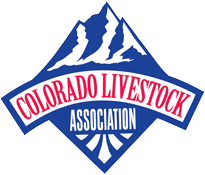Marketplace Demand for BQA Certification Increasing Rapidly
Why do producers become Beef Quality Assurance (BQA) certified? That’s a question that used to be more prevalent in the beef industry. However, based on several upcoming changes in the marketplace, the rationale for participating in the BQA program has become much clearer.
Until recently, among producers who have become BQA certified and follow recommended cattle management guidelines, the vast majority did so because “it’s the right thing to do.” Only a small percentage said they received a premium from a buyer for cattle from a BQA certified producer. As a result, a minority of beef cattle producers in the U.S. are currently BQA certified. However, in the past 12 to 18 months several companies have announced that BQA certification will be required among producers of cattle they purchase.
Cargill was the first packer to announce that by late 2018, 90% of the feedyards from which they purchase cattle will have to be BQA certified. More recently, Wendy’s restaurants announced that by 2019 they will only source beef from cattle feeders who are BQA certified. In turn, Tyson Foods recently publicized that they will require all of their cattle suppliers to be BQA certified by January 1, 2019. Tyson will also require all cattle transporters who supply cattle to their facilities to be BQA Transportation (BQAT) certified by 2020.
These major announcements within the beef production chain – driven by consumer concerns primarily about animal welfare and food safety – show the direction the beef industry is moving relative to the importance of BQA certification. Further, BQA certification requirements placed on feedyards by the food service and packer segments suggests that in the future some feedyards may consider requiring BQA certification among their feeder cattle and calf suppliers. Such a move would help them ensure a source of high quality cattle, and an opportunity to differentiate themselves in the marketplace.
BQA is a producer-driven, voluntary beef industry quality control program focused on the educational training of producers about recommended national guidelines related to animal care and management. The ultimate goal is to protect consumer confidence in beef, while also improving the overall safety, quality, and value of U.S. beef.
The BQA program is implemented at the state level, and Colorado is home to one of the nation’s strongest and most cutting-edge BQA programs. As a result, over 1,200 beef cattle producers in Colorado are currently BQA certified, which was accomplished via in-person face-to-face and on-line (www.bqa.org) methods. To learn about upcoming certification opportunities, interested producers should contact the Colorado BQA Program (www.cobqa.org), which is a joint effort funded by the Colorado Beef Council (via beef checkoff dollars) and Colorado State University (CSU), and implemented via a partnership between CSU, the Colorado Livestock Association, and the Colorado Cattlemen’s Association.
To learn more about the Beef Quality Assurance program, contact Libby Bigler, Colorado Beef Quality Assurance Program Coordinator, by phone at (970) 491-2333 or by emailing libby.bigler@colostate.edu or visit www.cobqa.org.
Jason Ahola and Libby Bigler, Colorado BQA Program, Department of Animal Sciences, Colorado State University
